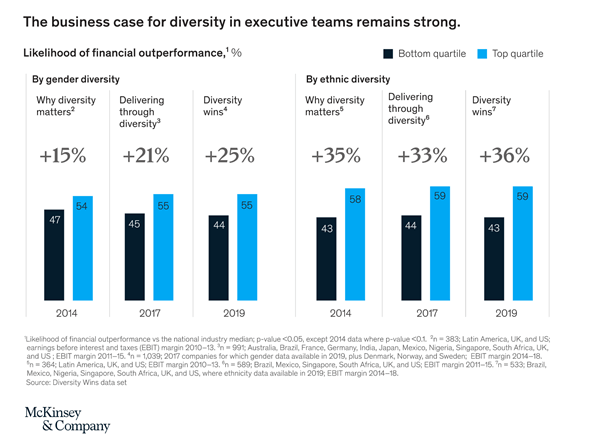A personal opinion piece by Ric Sinclair
Over the last three months, it is quite clear that one person can make a difference in the consciousness of Australia. The powerful speech by Australian of the Year, Grace Tame, a teenage victim of sexual abuse has enabled many people to find their own voice and talk about their experience with sexual abuse, bullying or harassment.
In the forest and wood products sector, we also heard a very eloquent and passionate speech at the 2019 AFPA Dinner in recognition of International Women’s Day. Linda Sewell, then CEO of OneFortyOne, spoke about her own career and the challenges of a talented and ambitious woman who had to deal with overt and covert prejudice. In telling her story, Linda identified the pivotal moment when one influential person judged her on merit and not gender. Linda got the standing ovation from the audience that she deserved.
One person can make a difference. We can all make a difference.
It is a simple statement of fact that the forest and wood products sector is largely male, white and aging.
This demographic is sometimes disparaging referred to as “male, pale and stale.”
Sadly, this is me.
While I can’t change my age and ethnicity, I can and do try to respect the potential and contributions of people who are not like me.
That is not to say that I am some paragon of virtue. In thinking back over my personal and professional life, I am sure that I have said and done things that today would not make me proud. To those that I may have inadvertently offended, then I say sorry, and I truly hope that I have not caused harm.
I certainly know that I have witnessed bullying, sexual harassment and other inappropriate behaviours and I did not speak up loudly at the time. For that, I am also very, very sorry.
The Australian forest and wood products sector is proud and it is conservative, which is not a good combination for embracing change. But even in my own working life I have seen change. Perhaps not as transformational or as quick as I or some others may have liked.
One of the innate features of humanity is that we are attracted to people like ourselves. Deep within our psyche is a fear of “others” and this has a practical implication in how organisations and sectors are built. We try to recruit, retain and promote people like us.
There is a growing body of evidence that diversity and inclusiveness matters. And it can make a substantial difference in a company’s profitability.
Respected international management consultancy, McKinsey and Co, have been measuring and tracking the performance of companies around the world and according to their 2020 study ”… companies in the top quartile for gender diversity on executive teams were 25 percent more likely to have above-average profitability than companies in the fourth quartile.” The business case for ethnic and cultural diversity is equally compelling.

From a social licence perspective, surely a sector that better reflects the diversity of the community is also more likely to better communicate and respond to the community’s needs and gain its ongoing support.
Through most of my working life, I have played a role in promoting the positive benefits of the forestry sector and its products. I was born into the sector with a family that had deep connections with forestry in northeast Victoria.
There is no doubt in my mind about the socio-economic and environmental benefits of wood products compared to the alternatives.
But I always hoped that we could do better. We could respond to change better (instead of defending the status quo until it was undefendable). We could be more innovative and inclusive. We could invest more in our future.
In my current role, I have the enormous privilege of dealing with the senior levels of the sector, something that my bulldozer driving father could never have fathomed. And despite our different backgrounds and upbringing, I mostly see people like myself at the senior levels of the sector.
I rarely see people of a different gender, sexual orientation, ethnicity or disability. And this makes me worried about the future sustainability of our sector.
Diversity matters and we need to embrace it and take positive steps now. I am somewhat torn around the idea of quotas and would rather appeal to the better nature of those in positions of influence. We need to recognise that embracing diversity and inclusiveness is not only morally right, but it also makes commercial and strategic sense.
Therefore, I now publicly call on all those in leadership roles within the sector, from CEOs to shift supervisors, to join me in a public pledge: I respect diversity!
I RESPECT
I will make a difference
Reflect on my own behaviour and unconscious bias
Empathise with those who come from a different position or background
Speak out when I see inappropriate behaviour
Promote human diversity in all its forms
Empower those around me to speak out if they see inappropriate behaviour (including mine)
Celebrate changes that have been made
Transform myself and those around me.
To this end, as a personal initiative, I have established a new public pledge website where current and future leaders can proclaim their support to diversity and inclusiveness. By signing up to this public pledge, then iRESPECT Supporters give their permission to others to hold them to account.
You can express your support for this initiative at:
www.iRESPECT.com.au
I am also hopeful that those in leadership positions who support the iRESPECT Pledge will join me in making themselves available to coach and support a wide diversity of talent to help grow the sector.
In my professional capacity as managing director of FWPA, I would welcome anyone to contact me if they would like advice on how their uniqueness can play an important role in the future of our sector (ric.sinclair@fwpa.com.au).

Gold Sponsors



